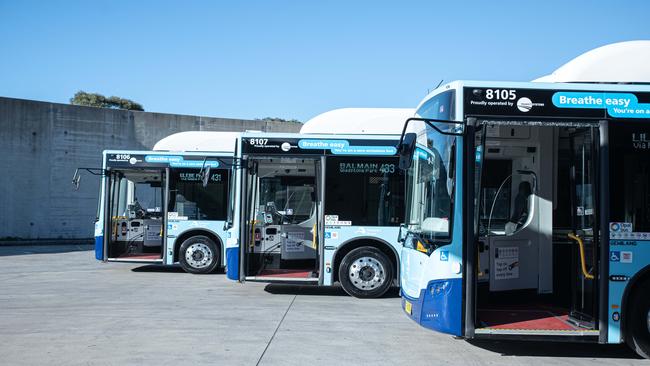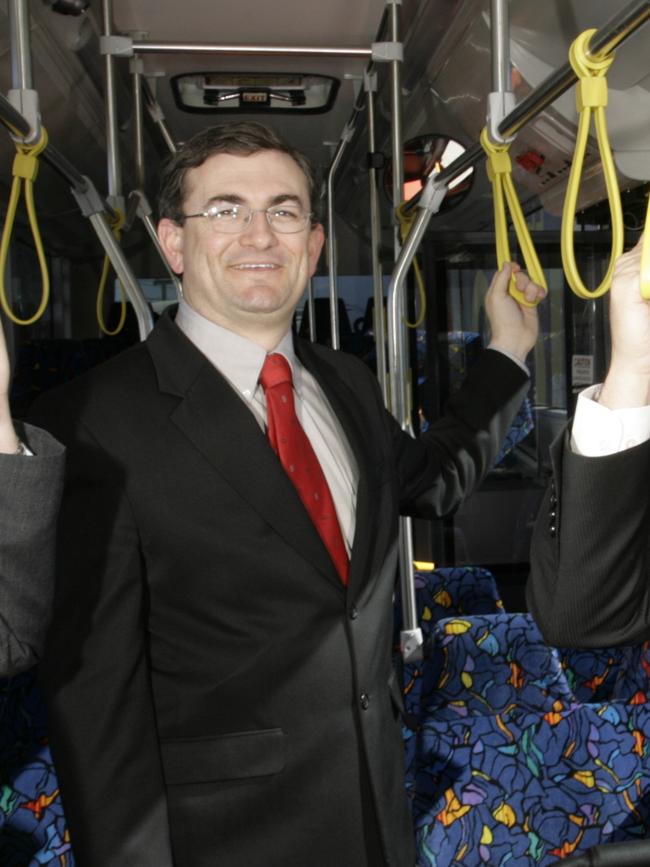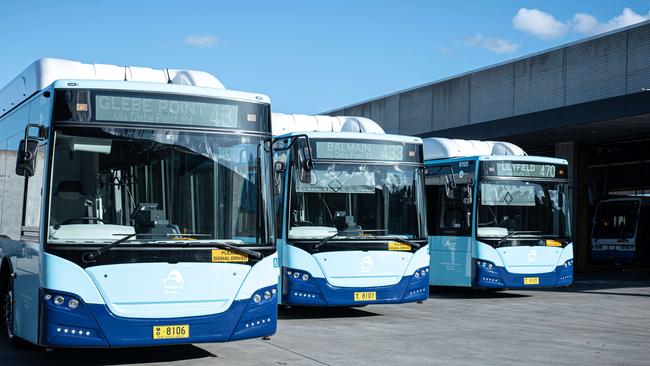NSW electric bus plan: experts warn transition could cripple energy grid
Bus producers, including Volvo and Scania, have called on the NSW Government to scrap its plans to transition the state’s bus network to a completely electric system.
Local
Don't miss out on the headlines from Local. Followed categories will be added to My News.
- NSW electric bus plan: extra $1.9b in upfront costs
- ‘M12 will kill employment land’: Airport, councils say
Bus producers, including Volvo and Scania, are calling on the NSW Government to scrap plans to transition the state’s bus network to a completely electric system — instead urging the government to ‘go hybrid hydro’ to reduce the impact on the energy grid.
Australia’s leading minds in the development of hybrid buses gave evidence in the NSW Government inquiry into the large-scale rollout of electric buses across NSW on Wednesday.

Volvo Bus Australia vice president David Mead said although he was convinced electric buses will “play a part in the future of NSW transport” self-charge hybrid buses should not be dismissed.
“Hybrid buses are available today and can be built in NSW with outstanding economic results,” Mr Mead told the inquiry.
“We see them as a viable alternative that will not require massive infrastructure investment and will deliver a lower carbon footprint.”


Scania Australia product manager Trevor O’Brien said if the government’s objective was to reduce the carbon footprint, electric buses would not achieve that result.
“Electric vehicles today will be worse for the environment,” he said. “This is due to the challenges we have with electricity generation through coal.
“Hybrid vehicles could be a bridging option, they are available here and now, rather than waiting for a long and expensive transition.”
ARCC engineering director David Evans agreed with claims the completely electric system would not result in zero-carbon transport, while Siemens Bus Electric vehicle promoter Olivia Laskowski said bus companies were unaware of grid constraints.
Mr Mead said Transport security could become a major issue: “if there is a fault in the electric gird, transport could be limited.

Inquiry chair, Hawkesbury state Liberal MP Robyn Preston questioned the lifespan of batteries currently used in electric buses.
However, Mr Mead said the lifespan was “longer than we first predicted”.
“We thought the lifespan of batteries was five years,” he said. “But hybrid buses in London are lasting eight and nine years.
“We can tell the vehicle what to do by GPS or the state of charge and with this technology we are seeing buses travelling for 350km before a charge.
Mr Mead said developers were looking at “fast-charge technology” where bus providers and Transport for NSW could move the charging station from the depot to out into the street.

